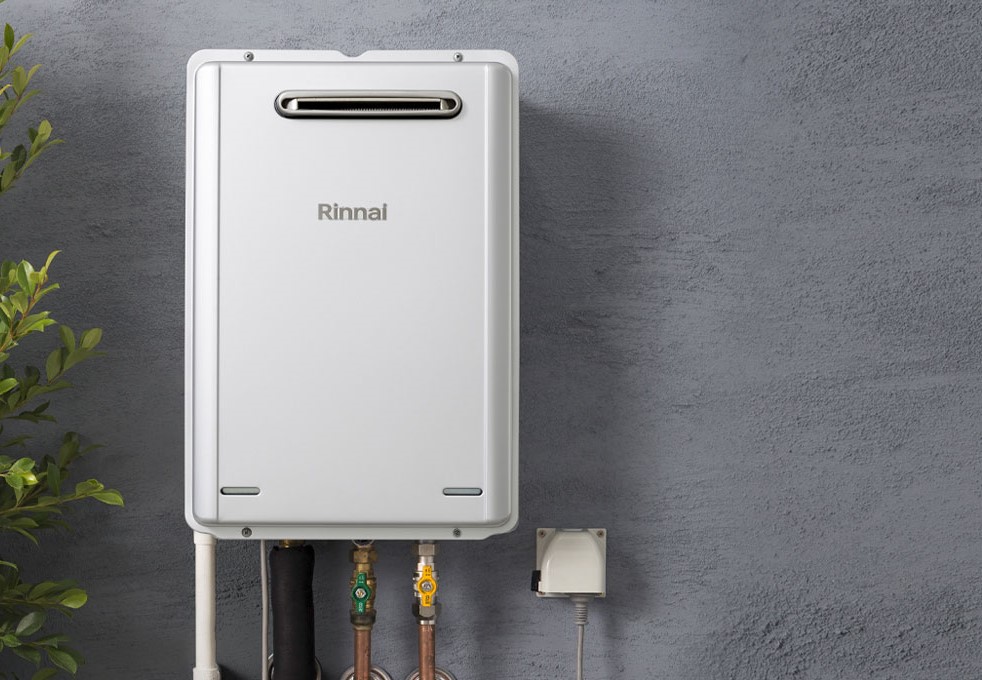If you’re ready to invest in a new hot water heater you might be considering a continuous flow system. Continuous flow hot water heaters do exactly what their name implies: deliver a continuous flow of hot water. If you’re not sure if that’s the right hot water solution for your home, read on to find out more about it.
Will a continuous flow hot water heater work in my house?
A continuous flow hot water heater can be installed in your house if you can access a gas energy supply – either through gas mains or LPG tanks. All continuous flow hot water systems run on gas.
Click here to find out if your address can access mains supply gas.
As well as having access to gas, there are other factors that are important to your decision. How big your house is, the number of people living in your home, and the number and location of your bathrooms will also impact how effective a continuous flow hot water heater can be. The right solution may also differ if you’re installing on a commercial vs. residential property.
Do you have the right water pressure for a continuous flow hot water system? Continuous flow hot water systems like Rinnai Infinity require a minimum pressure of 1 bar (100 kpa), with the ideal water pressure at 300-500 kpa.
All continuous flow water heaters require power to operate but if you’re living off-grid or preparing for power outages you could explore the Bosch Hydroflow Range. It is possible (but not recommended) to run your continuous flow system on solar power and generators as long as the power is continual with no fluctuations.
Providing electricity for continuous flow hot water heaters with an off grid power supply could void the warranty. Check with your supplier for details.
How much does it cost to operate a continuous flow hot water heater?
The cost of operating a continuous flow hot water heater depends on how much hot water your household uses. The cost directly correlates to your usage – unlike with hot water storage systems where you’re paying to heat the water in your tank even if you’re not using it.
Where is a continuous flow hot water heater installed – inside or outside?
You can install a continuous flow hot water heater either inside or outside your home or business – there are models available to suit both options. Your installer’s preference will normally be to place your hot water heater on an external wall. If that’s not possible you can explore internal solutions.
How long does it take to install a continuous flow hot water heater?
The time it takes to install a continuous flow hot water heater depends on whether you’re replacing an existing unit or installing one for the first time.
As a rough estimate you can expect a replacement installation to take between 2.5 and 4 hours. If your existing unit is very old this may take longer if you need pipes to be altered to be compatible with the new unit.
Installing an external continuous flow hot water system into your home or business for the first time usually takes between 7 and 10 hours. If you opt for an internal unit it can take longer due to the flu/ventilation requirements.
What are the different models of Rinnai Infinity Hot Water Heaters?
East Coast Plumbing and Gas recommends Rinnai Infinity Continuous Flow Hot Water Heaters because they are the market leader in New Zealand. Rinnai offers a large range of high quality units so you can choose the model that will deliver the best results for your home or business.
If you want to maximise the efficiency of your hot water system, ask about the Rinnai Infinity EF range of continuous flow hot water heaters. With a high energy efficiency level of 92%, Infinity EF units convert gas to hot water more effectively, giving you better efficiency on a day-to-day basis.
Rinnai’s Infinity A series units offer an efficiency level of 80% and are recognised as a high quality option for homeowners. The Rinnai Infinity A series is available for both external and internal installations.
Explore the full Rinnai Infinity range here or contact our team and we can help you find the right model for your home or business.
How often should I get my Continuous Flow Hot Water Heater serviced?
You should get your continuous flow hot water heater serviced every 2 years. This helps to protect any warranty on the hot water system and also makes sure it’s operating safely and all parts are in good working order.
Servicing your hot water system regularly can extend its life and could help you avoid more costly repairs caused by an unexpected part failure.
Is there a warranty on my Rinnai Infinity Hot Water Heater?
If you purchased a Rinnai Hot Water Heater from East Coast Plumbing and Gas, you can contact us to find out if you’re still within the warranty period.
Click here to review the warranty on different types of Rinnai Continuous Flow Hot Water heaters.
How to check your continuous flow hot water system is safe after an earthquake or power cut
After a heavy earthquake we recommend having your gas system checked for leaks by a professional gas fitter like East Coast Plumbing and Gas.
If you experience a power cut and your unit is not working when the power comes back on; try turning the power off for a few minutes and then back on again. Run a tap and see if your hot water is now working. If it’s still not heating, book in a site visit and one of our experts will come and help.
Choose East Coast Plumbing and Gas for all of your hot water needs
East Coast Plumbing and Gas are your Rinnai Authorised service agent for Rinnai Infinity Hot Water systems in Hawke’s Bay. As well as installing and maintaining continuous flow hot water systems, we can also maintain or install all other kinds of hot water solution. Because we offer a wide range of hot water systems, you can rely on us to help you choose the best fit for your home or business.
East Coast Plumbing and Gas are members of the Master Plumbers, Gas Fitters and Drainlayers Association. When you ask us to help with any aspect of your hot water system, plumbing, heating or drainage: you know you’re contacting an expert.
Find out more by visiting our Home Heating Centre or contact our team today.


